1366 More than an essay on Canada
Imagined Truths: Myths from a Draft-Dodging Poet
by Richard Lemm
New Westminster: Tidewater Press, 2021
$21.95 / 9781990160066
Reviewed by Heidi Greco
*
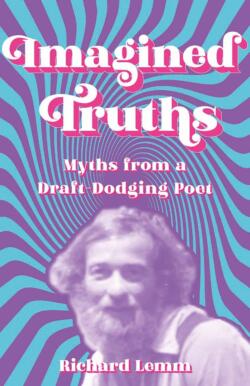 Puzzled. That’s the feeling I occasionally had while reading this far-reaching memoir. It’s far-reaching not only in the years it covers — from the 1950s to today — but also in the span of its consciousness and even geography, and sometimes I wasn’t quite sure where its path was leading me.
Puzzled. That’s the feeling I occasionally had while reading this far-reaching memoir. It’s far-reaching not only in the years it covers — from the 1950s to today — but also in the span of its consciousness and even geography, and sometimes I wasn’t quite sure where its path was leading me.
It’s a remembrance that takes us back to the author’s childhood, growing up in and around Seattle, under the eye of Mount Rainier (sadly, misspelled more than once in the book). He’s a boy who lives with his grandparents (one of whom is actually a step-grandparent) because his father is dead and his mother is incarcerated in a mental hospital. And if that isn’t enough to take your breath away, hang on. The litany of relatives strewn across these pages may make you want to start a score sheet.
Lemm is lucky enough to actually know quite a few of these uncles and aunts, but he also learns about others of his long-gone ancestors through stories, many of which are downright valorous accounts. While I’m not sure I needed to know the often-uncertain-sounding histories of quite so many of his forebears, it’s worth noting that nearly all of them seemed to serve in the military. I suppose this grants a certain sweet irony to the fact that the author would later apply for Conscientious Objector status during the Vietnam War.
I’ll also admit to often feeling included, and to understanding some of his childhood experiences, as I too spent much time living with my grandmother and her second husband. I also had a mother with enough emotional troubles to make me feel too embarrassed to want to have friends over. I also understood why, in school, he got involved in so many activities — such a good excuse to stay after and not go home.
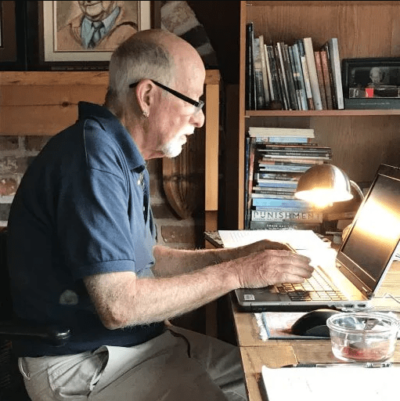
Possibly because he spent so much of his childhood pining for his mother to come home — and for her to be normal — he develops a loving appreciation for the care he receives from his grandmother. Those rare occasions when he does have an insightful conversation with his mother become all the more poignant, as for instance when the two of them are sharing a meal at McDonald’s and she tells him that she wanted to be a dancer — and a historian. While the young Richard is clearly impressed, when he asks for a reason for such an oddly-paired career dream, she has “…no more to offer. A revelation was invariably a lone lightning flash and never followed by a crash or low rumble of clarifying thunder, let alone the downpour or drizzle of an explanation.”
But disappointments with his mother aren’t his only mental confrontations. Over the years, on his long road to Canada, he learns to look at both sides of war and what it means:
In elementary school, during the Korean War, one of my favourite playground games was “fighter pilot.” We’d take turns being American F1 jets and Russian MIGs, swooping toward each other, firing rockets and machine guns, and dive-bomb girls and other boys, our afterburners roaring. When asked what I wanted to be when I grew up, I said, “a fighter pilot.” [But] in what seems like another life, as the Vietnam War burst into my consciousness, I developed a moral abhorrence of the fighter-bomber flyboys blasting rice paddies and villages, and even more, a loathing for B-52 pilots dropping automated death from lofty altitudes.
Because “Canada had not yet introduced its point system” for potential immigrants, he and his then-partner only had to write an essay, describing the reasons they wanted to move here. As Lemm puts it, using sports terminology, so in keeping with his athletic abilities, “This was my sweet spot, and I swung away enthusiastically, putting lots of spin on the ball.” No doubt, there are many caught up in the bureaucratic entanglements of today’s policies who must feel more than slightly jealous of such a system.
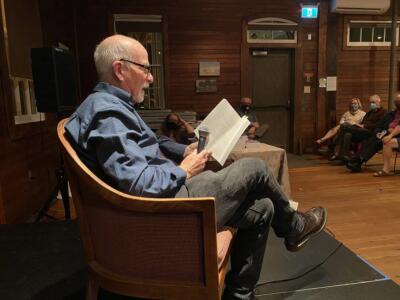
When he does arrive in Canada, he mostly feels familiar, calling Seattle and Vancouver “…part of a cultural continuum.” And it is in these last few chapters that the book comes into its own, even though it still often resembles a tailspin in the ways it wanders. After a short time in Vancouver, meeting such well-known figures of the day as lawyer and politician Harry Rankin, poet Milton Acorn, and bookseller Binky Marx — even landing a job at Duthie’s Books — Lemm heads up-country for a promised “job” at a place where events sound too much like the terrible stories we’ve heard about residential schools. It is there that he learns that Canada has its own form of racism, and cites instances where the nuns treat the Indigenous children so cruelly and unfairly.
It is only after that experience that he heads for the East Coast, where not only the book, but the man himself seems to come into his own — as a poet, a professor, and a respected academic at the University of Prince Edward Island. It’s a tumultuous road he’s travelled, one that more-than-occasionally seems directionless, but then maybe that’s why the publisher selected a swirled pattern that’s so reminiscent of psychedelic posters for the cover of this memoir which is based, as the author admits, in so many imagined truths.
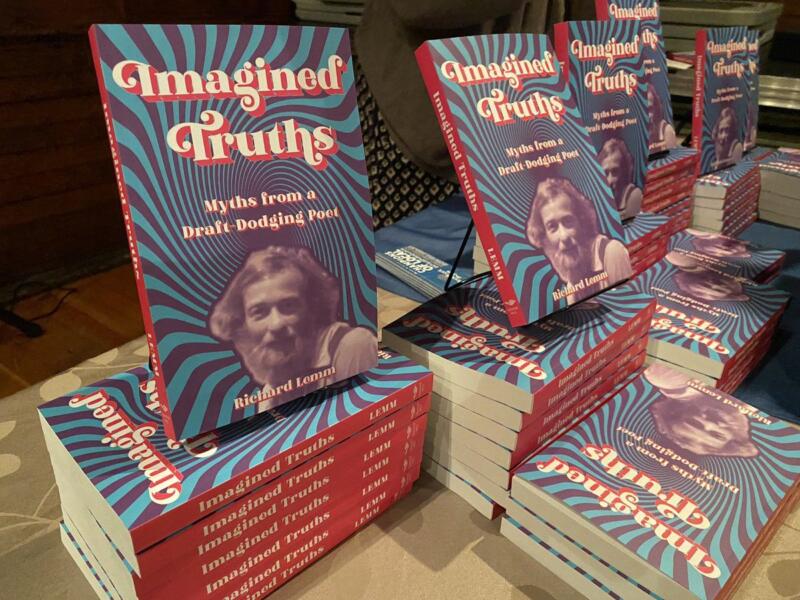
*
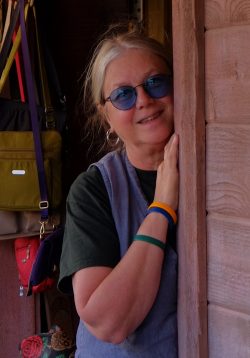
Heidi Greco lives in Surrey, where some would contend she can often still be found to be tilting at windmills. Editor’s note: Heidi Greco has reviewed books by Souvankham Thammavongsa, Marguerite Pigeon, John Gould, Joanna Lilley, Laura Matwichuk, bill bissett, Patricia Young, and Sarah de Leeuw for The Ormsby Review. Three of her recent books have also been reviewed here: Glorious Birds: A Celebratory Homage to Harold and Maude (Anvil, 2021), reviewed by Linda Rogers; From the Heart of it All: Ten Years of Writing from Vancouver’s Downtown Eastside (Otter Press, 2018), reviewed by Yvonne Blomer; and Practical Anxiety (Inanna, 2018), reviewed by Andrew Parkin.
*
The Ormsby Review. More Books. More Reviews. More Often.
Publisher and Editor: Richard Mackie
The Ormsby Review is a journal service for in-depth coverage of BC books and authors in all fields and genres. The Advisory Board consists of Jean Barman, Wade Davis, Robin Fisher, Cole Harris, Hugh Johnston, Kathy Mezei, Patricia Roy, Maria Tippett, and Graeme Wynn. Scholarly Patron: SFU Graduate Liberal Studies. Honorary Patron: Yosef Wosk. Provincial Government Patron since September 2018: Creative BC
“Only connect.” – E.M. Forster
4 comments on “1366 More than an essay on Canada”